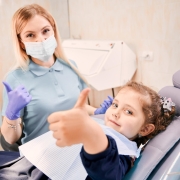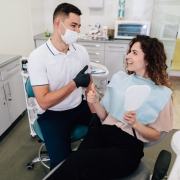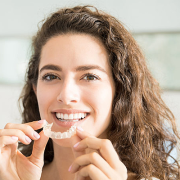What to Expect from Early “Phase One” Treatment for Your Child’s Teeth
Children don’t always need to wait until they get their permanent teeth for orthodontic care. Our orthodontists in Wichita, KS, at Trimmell Anders & White Orthodontics may recommend early Phase I treatment if your child shows certain signs of potential orthodontic issues, such as extra teeth or not enough space for permanent teeth to erupt. We’ll explore what happens with this kind of treatment so you know what to expect!
Why It’s Done
Our orthodontic team uses this treatment to help improve how your child’s lower and upper jaws fit together. This approach helps ensure that there’s adequate room for permanent teeth to break through the gums instead of getting trapped.
When It’s Done
Phase I treatment may be recommended when your child’s four upper front teeth come in. This usually happens when kids are between 7 and 9 years old, though this may vary.
How It’s Done
The exact process may vary, depending on your child’s teeth and jaws. We’ll typically have your child wear an orthodontic appliance on their lower or upper permanent teeth — or both. Some children wear expanders to help shift teeth into a better position for proper alignment. If needed, we might take steps to make sure your child’s mouth has enough room for permanent teeth to break through the gums.
What Happens After Treatment
Phase I is just one part of the process. Your child moves onto Phase II when your child has all or most of their permanent teeth.
Set Up an Orthodontic Appointment for Your Child Today!
Does your child need early Phase I treatment? At Trimmell Anders & White Orthodontics, we provide this orthodontic care to help your child’s teeth grow in evenly and support proper alignment. Reach out to us to schedule an appointment for orthodontics in Wichita, KS!











